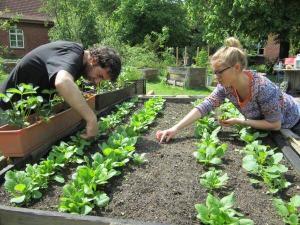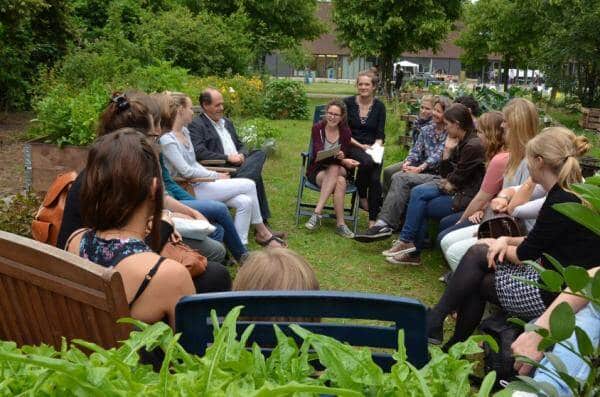When applying collective action theory to these community gardens, it becomes evident that they are special in the motivation of why people get organized. Particularly in developed countries, urban gardens emerge in response to a lack of participation in city development, democratic use of public spaces or opportunities and time for socializing.
Just one example of this community gardens is the garden project Campusgarten GrüneBeete in Münster, Germany. The garden was founded in 2014 by Nicole Rogge und Anna Rechenberger and was a result of two years previously started student-project. The garden is now institutionalized by the registered association (GrüneBeete e.V.), involving not only students but all people who are interested in gardening. Therefore the garden is a very dynamic and open place, where collective action taking place not only through collective and sustainable management, but sharing all resources like tools, beds, the harvest, work, and social time.
Authored by: Nicole Rogge, a Ph.D. candidate at University of Applied Sciences, Münster and Martin-Luther-University Halle-Wittenberg, e-mail. Besides working as a practitioner in her garden project, Nicole Rogge conducts a Ph.D. project on ‘Categorizing urban gardens: Collective action in community gardens’ at the Department of Agricultural-, Environmental, and Food Policy of the Martin-Luther-University Halle-Wittenberg, led by Prof. Insa Theesfeld.



